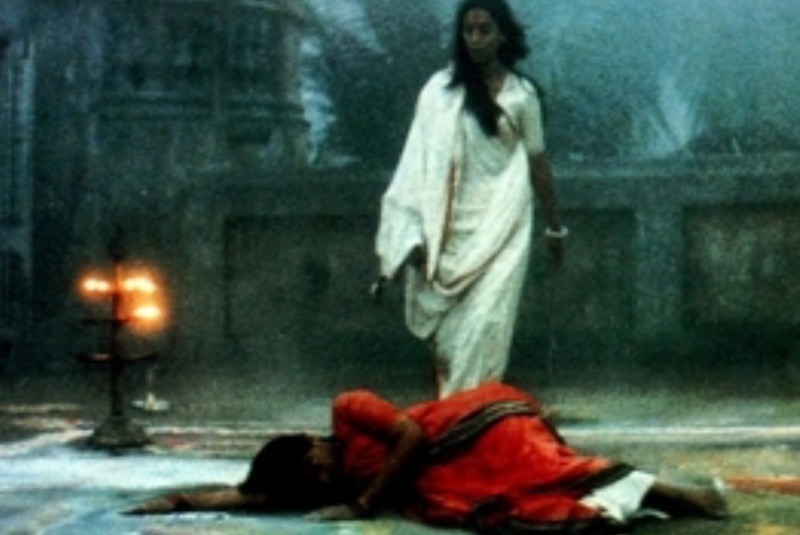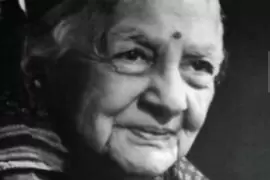In 1986, the French director Nicholas Klotz contacted Mircea Eliade, the Romanian historian, fiction writer, and professor, to produce an adaptation of his novel Les Nuits Bengali. The year had proved hard for him, as his health was deteriorating, and a fire had destroyed his office. Sadly, Eliade passed away in April before the negotiation even concluded, a little over a week after a stroke had impaired his ability to speak.
Eliade wouldn’t allow Les Nuits Bengali to be translated into English. Would he have allowed Klotz to film a movie that was to be released in English? We don’t know, but it would have defeated the purpose if Eliade had not allowed an English translation for a novel that brought him immense popularity across the globe.
In 1930, when Eliade was just twenty-three years old, he travelled to Calcutta, India, to study under the mentorship of an eminent scholar, Professor Dasgupta. Professor Dasgupta hosted Eliade at his own house, where he lived with his family. Adapting him to his Indian household, the professor affectionately called the twenty-three-year-old “Marichi,” which meant rays of light, a play on his name, Mircea.
Dasgupta had a daughter, sixteen-year-old Maitreyi Devi, who was attending university and had already been an accomplished poet. She was Rabindranath Tagore’s favourite pupil, whom she referred to as Gurudev. The sixteen-year-old Devi and the twenty-three-year-old Eliade were enamoured with each other. They began spending time together until Dasgupta learned about their feelings. The professor asked Eliade to leave and told him not to contact Maitreyi ever again.
Devi was married by twenty to a Bengali man, had two children with him, and contributed greatly to Indian literature with her poetry and prose. She wrote extensively about her mentor, Rabindranath Tagore, and also worked for the needs of unfortunate children by setting up orphanages.
Three years after Eliade had lived in Calcutta, he published a novel in Romanian, his mother tongue. The book revolves around Devi, who was initially named Maitreyi. Acclaimed as autobiographical, the novel was believed to be an account of Eliade’s fiery romance in India; it was an overnight hit and made Eliade famous in Romania and across the globe. The book was translated into various European languages other than English.
Devi heard about Eliade’s novel in 1938, five years after its publication. Her father, who had returned from his trip to Europe, told her that Eliade had written a book about her. She began travelling to Europe herself in 1953, where she would meet Romanians who claimed to know her. In 1972, when Eliade’s friend visited Calcutta, Devi found out what Eliade had written about her in his novel.
Devi got a friend to translate the novel from French. She read it and realised that the book had changed all the names except that of Devi and her sister. The relationship, as described in the novel, was sexual in nature, an oriental fantasy. Devi was reduced to an exotic and mysterious heroine for European readers.
Devi was shaken; she was furious and even confused about her feelings. At first, she responded with the volume Aditya Marichi, a series of poems that came out in 1972. The name was inspired by Eliade’s nickname. The poems included in the volume include: “Many Times Have I Thought,” “So Many Ages Have Passed,” “Let Me See You Once,” “Do Not Pull Me So,” “If We See Each Other Again, Suddenly,” and “I Read Love Poems, Alone.” Devi was 58 at the time, and the poem’s title clearly expresses the turbulence she felt after the appearance of a long-lost lover.
In 1973, Devi made her way to the University of Chicago for lectures regarding the life and works of Tagore. She showed up at Eliade’s office and confronted him about his novel.
“When I met him in 1973 after forty-three years, I asked him why he had written such calamitous things about me. He said it was a fiction and that there are other persons of the same name as I! Well what can you say to this!”
Over two months, Devi and Eliade met several times. In 1974, Devi’s response to Eliade’s book was released in Bengali, Na Hanyate. The book was later translated as It Does Not Die.
In her book, Devi explained what happened when Eliade visited India and stayed with her family in 1973. She has passionately expressed her love for the European man at the time, and those feelings for young Eliade were eternal. The title of the book Na Hanyate, It Does Not Die in English, symbolises an everlasting feeling of love; however, she makes it clear that the relationship was not sexual.
Maitreyi Devi found a lot of fame and readership after publishing her Na Hanyate in response to Eliade’s book. The book won the Devi Indian Akademi Award and was translated into several languages, including Romanian, Eliade’s mother tongue. However, Eliade’s book was not made available in English. The reason was that during the two writers’ meetings after 43 years, Devi had ensured that an English translation of Eliade’s book was not made available in her lifetime.
Through letters exchanged between Devi and Eliade’s translator, Devi claimed that Eliade did not keep his promise to publish an epilogue, admitting that some parts of the story are fantastical and untrue. Devi used a stern tone, one filled with disappointment but also assertive, to let Elaide know that if he broke the promise to publish the novel in English in her lifetime, he would face legal charges. Eliade’s book was translated to English as Bengal Nights in 1993, three years after Devi’s death.
Nicholas Klotz, the director of The Bengali Night, received film rights from Eliade’s widow, Christinel Eliade. The film, which starred Hugh Grant and Supriya Pathak, began shooting in November 1987. Devi was greatly disappointed that Eliade’s wife had given permission to make the film and strongly challenged its production, which led to court cases against the film. Devi received public sympathy for having been wrongly portrayed in the movie.
The film was never released in India and was only shown at the Indian Film Festival of 1989. It was also never released in the United States, as Klotz had hoped for, as it starred Hugh Grant.
The relationship between a young Devi and young Eliade may have been love or just infatuation. Still, the two books clearly show the difference in cultures, gender, and status in the post-colonial era. A European man could write about his romance with elements of erotica without being mindful of how it could affect and hurt the image of a woman in India. It shows the lack of understanding and sympathy towards Devi’s life and culture. On the other hand, Devi’s book was not just a justification of her role in Eliade’s story but also a confession of eternal love.
-30-
Copyright©Madras Courier, All Rights Reserved. You may share using our article tools. Please don't cut articles from madrascourier.com and redistribute by email, post to the web, mobile phone or social media.Please send in your feed back and comments to [email protected]











